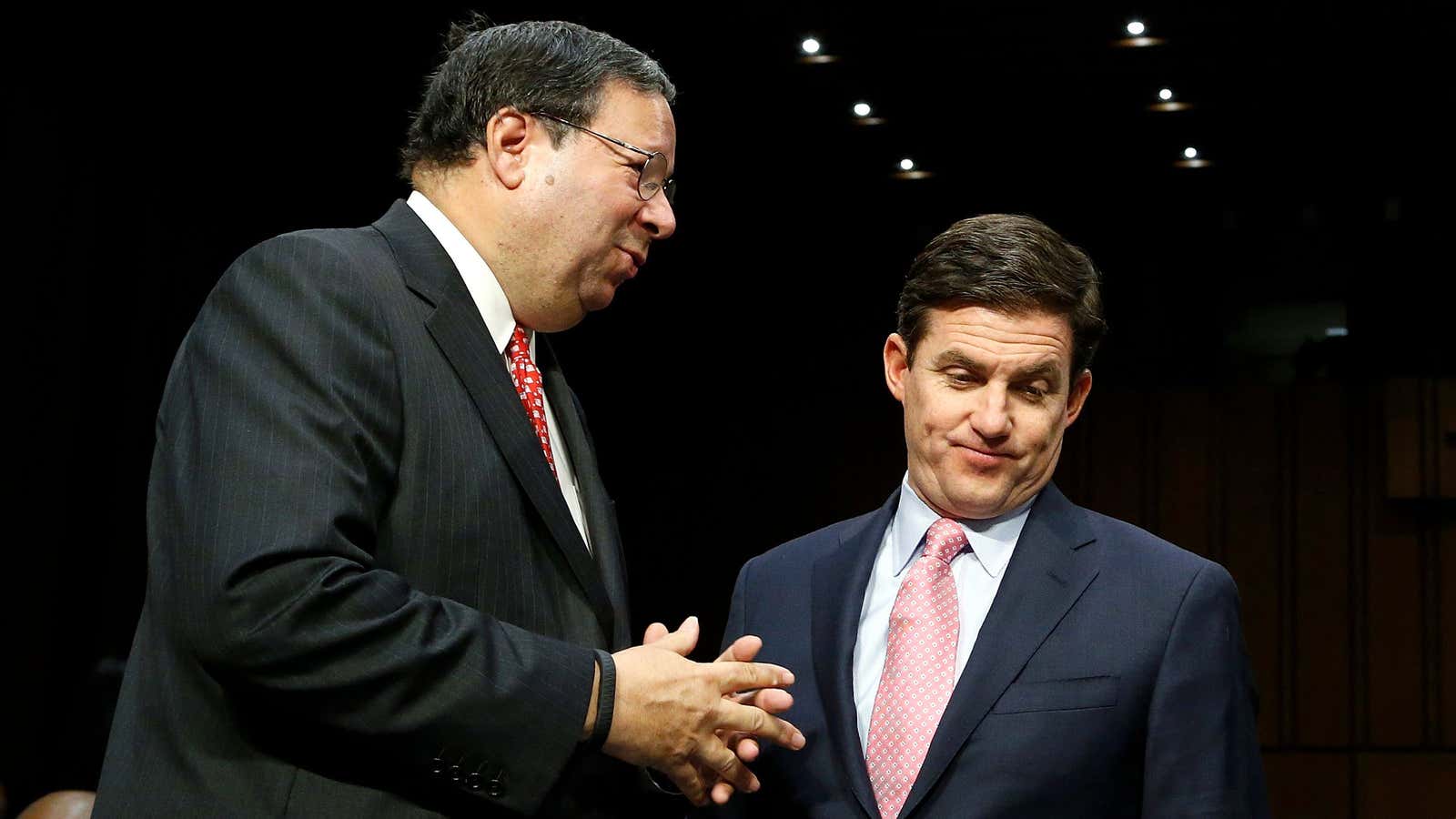Now that Comcast has announced its merger with Time Warner Cable is off, we can tally up some of the damage to the two companies. What did they lose? Four things, mainly:
1. The deal itself.
The $45 billion tie-up would have been great for Comcast shareholders, in part because it would have been so bad for consumers and for the company’s competitors. But a massive behemoth controlling 40% of American broadband was a deal too good to be competitive.
2. Public support in the net neutrality debate.
At the same time it was examining the merger, the Federal Communications Commission also was debating the creation of net neutrality rules that would, among other things, limit the ability of internet service providers to charge customers and content companies for better access. A record number of comments on the proposed rules flooded the FCC; many of the negative ones cited the prospect of cable consolidation. The impending merger helped crystallize those concerns, and the agency ultimately approved net neutrality rules opposed by the cable companies. The rules now face challenges in court, but they might have been crafted more to the companies’ liking if the firms had not pursued their audacious merger.
3. Time.
All data streams—television, music, movies, and information—converge on the internet, and Comcast and Time Warner saw a chance their chance to control the biggest share of the pipes. But competitors are banking on a world where a better consumer experience wins (all the more so if the pipes are subject to net neutrality rules). With Roku and Sling TV improving their offerings, Verizon plotting a channel unbundling, and, Apple TV soon arriving on the scene, it wasn’t ideal for the cable giants to get sidetracked. As the deal attempt dragged on, Comcast and, to a greater extent, Time Warner Cable, missed opportunities to meet the public demand for new media packages and products.
4. The chance to collect on a break-up fee.
This one is TWC’s problem alone.
When Comcast announced its planned acquisition of TWC last year, analysts immediately noticed that there was no provision to pay TWC for its troubles should the deal go south, but executives denied that this was an oversight. “The absence of a break fee reflects our confidence of getting a deal done,” TWC’s CEO said last year. But now the truth is out: “We structured this deal so that if the government didn’t agree, we could walk away,” Comcast’s CEO said in a statement today. Without the cash, TWC won’t have the opportunity to pull a T-Mobile and use a failed merger to rebuild its business—which is probably why Comcast wouldn’t support one in the first place.
